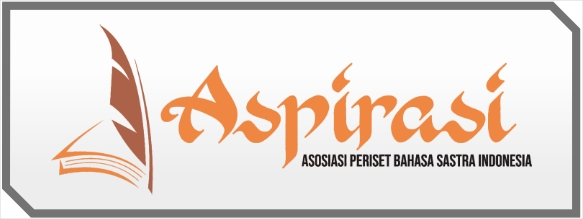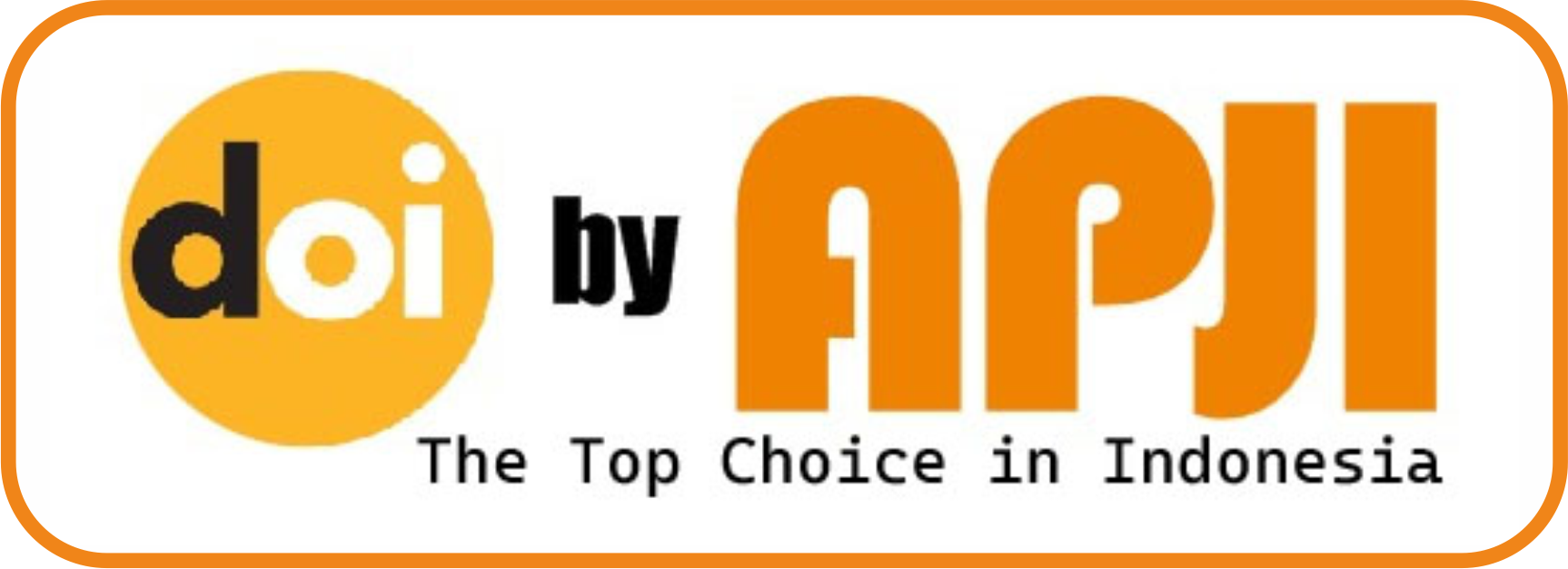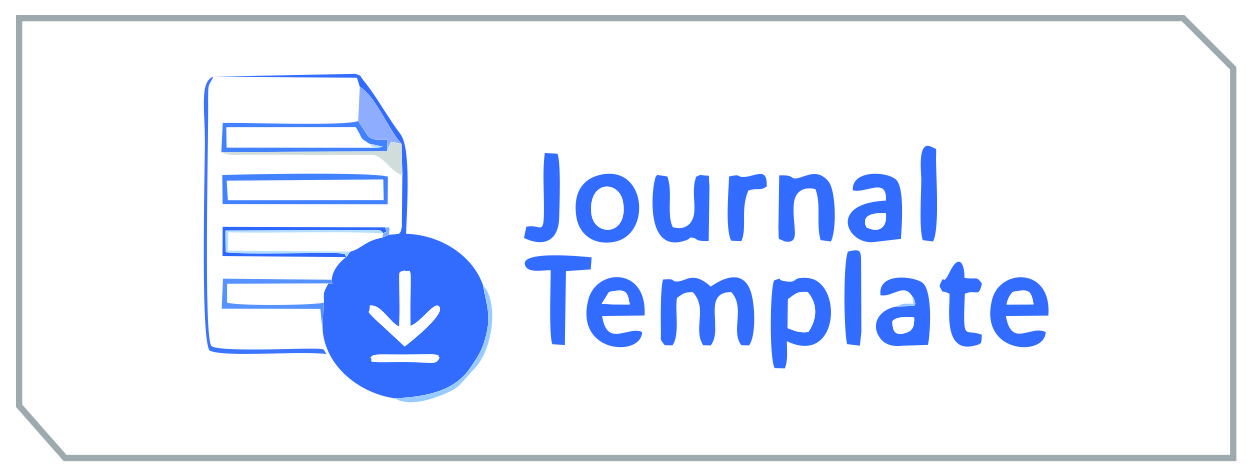The Effectiveness of STEM-Integrated Blended Learning on Indonesia Student Scientific Literacy: A Meta-analysis
DOI:
https://doi.org/10.55606/ijel.v2i1.53Keywords:
Blended Learning, STEM, Science Literacy, Meta-analysis.Abstract
This study aims to determine the effectiveness of STEM-integrated blended learning on Indonesian students' science literacy. This research is a type of meta-analysis research. The data sources in the study came from the analysis of 10 national and international journals published from 2017-2023. The data search process through searching on Google Scholar, Scopus, Wiley, Eric and Hindawi Journal. Data collection techniques in research through direct observation by tracing studies related to research variables. The keywords in this article search are blended learning, STEM and science literacy. Data analysis technique is descriptive quantitative analysis technique with JSAP application. The results concluded that STEM-integrated blended learning is effective in encouraging the level of science literacy of students in Indonesia with an effect size value of 0.71 and N-gain of 0.82. Blended learning greatly supports the learning process in Indonesia in improving students' literacy in learning.
References
Abdul Razak , Tomi Apra Santosa, Lufri , Z. (2021). Meta-Analysis: The Effect of HOTS (Higher Order Thinking Skill) Questions on Students’ Science Literacy Skills and Lesson Study on Ecology and Environmental Materials During the Covid-19 Pandemic Abdul. Bioedusiana: Jurnal Pendidikan Biologi, 6(1), 79–87.
Adi, W. C., Suwono, H., & Suarsini, E. (2017). Pengaruh Guide Inquiry-Blended Learning terhadap Literasi Sains Mahasiswa Biology. Jurnal Pendidikan: Teori, Penelitian, Dan Pengembangan, 2(10), 1369–1376. http://journal.um.ac.id/index.php/jptpp/
Apra Santosa, T., Razak, A., Anhar, A., & Sumarmin, R. (2021). Efektivitas Model Blended Learning Terhadap Hasil Belajar Mahasiswa Pada Mata Kuliah Zoologi di Era Covid-19. Biodik, 7(01), 77–83. https://doi.org/10.22437/bio.v7i01.11708
Ardianti, S., Sulisworo, D., & Pramudya, Y. (2019). Efektivitas Blended Learning Berbasis Pendekatan Stem Education Berbantuan Schoology Untuk Meningkatkan Critical Thinking Skill Pada Materi Fluida Dinamik. Prosiding Seminar Nasional Pendidikan KALUNI, 2, 240–246. https://doi.org/10.30998/prokaluni.v2i0.67
Aritonang, I., & Safitri, I. (2021). Pengaruh Blended Learning Terhadap Peningkatan Literasi Matematika Siswa. Jurnal Cendekia : Jurnal Pendidikan Matematika, 5(1), 735–743. https://doi.org/10.31004/cendekia.v5i1.555
Bedebayeva, M., Grinshkun, V., Kadirbayeva, R., Zhamalova, K., & Suleimenova, L. (2022). A blended learning approach for teaching computer science in high schools. Cypriot Journal of Educational Sciences, 17(7), 2235–2246. https://doi.org/10.18844/cjes.v17i7.7693
Chireac, S. M., & Vegas, R. A. M. (2022). A Bibliometric Analysis of the Spanish Scientific Production on Teaching Oral Communication Between 2010 and 2020. TEM Journal, 11(4), 1620–1625. https://doi.org/10.18421/TEM114-24
Fakhrurrozi, H., & Hamdani, F. (2022). Quality Management of Learning As an Effort To Increase School Accreditation Value During the Pandemic. Paedagogia: Jurnal Pendidikan, 11(2), 243–256. https://doi.org/10.24239/pdg.vol11.iss2.320
Ferdyan, R., Vauzia, Zulyusuri, Santosa, T. A., & Razak, A. (2021). Model Pendidikan Lingkungan Hidup: Kegiatan Pembelajaran pada Siswa Sebagai Bagian dari Lingkungan di Era New Normal. Natural Science: Jurnal Penelitian Bidang IPA Dan Pendidikan IPA, 7(1), 51–61. https://ejournal.uinib.ac.id/jurnal/index.php/naturalscience/article/view/2453
Ferry, D., Santosa, T., & Kamil, D. (2020). Pengetahuan Mahasiswa Institut Agama Islam Negeri Kerinci Tentang Teori Asal Usul Manusia. BIOEDUCA : Journal of Biology Education, 1(1), 11. https://doi.org/10.21580/bioeduca.v1i1.4945
Festiyed, Novitra, F., Yohandri, & Asrizal. (2022). Networked-based Inquiry: An Effective Physics Learning in the New Normal COVID-19 Era in Indonesia. International Journal of Instruction, 15(2), 997–1016. https://doi.org/10.29333/iji.2022.15255a
Firman, M. A., Ertikanto, C., & Abdurrahman, A. (2019). Description of meta-analysis of inquiry-based learning of science in improving students’ inquiry skills. Journal of Physics: Conference Series, 1157(2). https://doi.org/10.1088/1742-6596/1157/2/022018
Fradila, E., Razak, A., Santosa, T. A., Arsih, F., & Chatri, M. (2021). Development Of E-Module-Based Problem Based Learning (PBL) Applications Using Sigil The Course Ecology And Environmental Education Students Master Of Biology. International Journal of Progressive Sciences and Technologies (IJPSAT, 27(2), 673–682. http://ijpsat.ijsht-journals.org
Ichsan, Suhaimi, Amalia, K. N., Santosa, T. A., & Yulianti, S. (2022). Pengaruh Model Pembelajaran Problem Based Learning Berbaisis TPACK Terhadap Ketrampilan Literasi Sains Dalam Pembelajaran IPA Siswa Tingkat SD Sampai SMA: Sebuah Meta-Analisis. Jurnal Pendidikan Dan Konseling, 4(5), 2173–2181.
Iolanessa, L., Kaniawati, I., & Nugraha, M. G. (2020). Pengaruh Model Problem Based Learning (PBL) Menggunakan Pendekatan STEM dalam Meningkatkan Keterampilan Pemecahan Masalah Siswa SMP. WaPFi (Wahana Pendidikan Fisika), 5(1), 113–117.
Jagantara, M. W., Adnyana, P. B., & Widyanti, N. L. P. M. (2014). Pengaruh Model Pembelajaran Berbasis Proyek (Project Based Learning) Terhadap Hasil Belajar Biologi Ditinjau Dari Gaya Belajar Siswa SMA. E-Journal Program Pascasarjana Universitas Pendidikan Ganesha Program Studi IPA, 4(1), 1–13.
Kade, A., Syamsu, & Syukur, M. S. (2019). Pengaruh model blended learning terhadap literasi sains dan hasil belajar. Jurnal Pendidikan Fisika Tadulako Online (JPFT), 7(3), 51–55. http://jurnal.untad.ac.id/jurnal/index.php/EPFT/article/view/14586/10915
Kara, A., Anagün, Ş. S., Boyacı, Ş. D., & Yaşar, S. (2022). Investigating the link between teachers perceptions of 21st century skills efficiency and students perceptions of learning experience: Mediating role of teacher s self-efficacy. Journal of Pedagogical Research, 6(4), 50–65. https://doi.org/10.33902/jpr.202215268
Katasila, P., & Poonpon, K. (2022). The Effects of Blended Learning Instruction on Vocabulary Knowledge of Thai Primary School Students. English Language Teaching, 15(5), 52. https://doi.org/10.5539/elt.v15n5p52
Lestari, D. A. B., Astuti, B., & Darsono, T. (2018). Implementasi LKS Dengan Pendekatan STEM (Science, Technology, Engineering, And Mathematics) Untuk Meningkatkan Kemampuan Berpikir Kritis Siswa. Jurnal Pendidikan Fisika Dan Teknologi, 4(2), 202–207. https://doi.org/10.29303/jpft.v4i2.809
Li, B., Yu, Q., & Yang, F. (2022). The Effect of Blended Instruction on Student Performance: A Meta-Analysis of 106 Empirical Studies from China and Abroad. Best Evidence in Chinese Education, 10(2), 1395–1403. https://doi.org/10.15354/bece.22.ar018
Mursid, R., Saragih, A. H., & Hartono, R. (2022). The Effect of the Blended Project-based Learning Model and Creative Thinking Ability on Engineering Students’ Learning Outcomes. International Journal of Education in Mathematics, Science and Technology, 10(1), 218–235. https://doi.org/10.46328/ijemst.2244
Muthoharoh, M., & Elvina, I. (2022). Forming Student Character Through the Islamic Boarding School Programs At Smp-It Tarbiyatu Banin Dukuhpuntang Cirebon. Paedagogia: Jurnal Pendidikan, 11(2), 225–242. https://doi.org/10.24239/pdg.vol11.iss2.315
Nilsook, P., Chatwattana, P., & Seechaliao, T. (2021). The Project-based Learning Management Process for Vocational and Technical Education. Higher Education Studies, 11(2), 20. https://doi.org/10.5539/hes.v11n2p20
Nugraha, D. G. A. P., Astawa, I. W. P., & Ardana, I. M. (2019). Pengaruh model pembelajaran blended learning terhadap pemahaman konsep dan kelancaran prosedur matematis. Jurnal Riset Pendidikan Matematika, 6(1), 75–86. https://doi.org/10.21831/jrpm.v6i1.20074
Nur, A. M., Nasrah, N., & Amal, A. (2022). Blended Learning: Penerapan dan Pengaruhnya Terhadap Kemampuan Berpikir Kritis Mahasiswa Program Studi PGSD. Jurnal Basicedu, 6(1), 1263–1276. https://doi.org/10.31004/basicedu.v6i1.2189
Nurcahyani, D., Yuberti, Irwandani, Rahmayanti, H., Ichsan, I. Z., & Rahman, M. M. (2021). Ethnoscience learning on science literacy of physics material to support environment: A meta-analysis research. Journal of Physics: Conference Series, 1796(1). https://doi.org/10.1088/1742-6596/1796/1/012094
Oktarina, K., Santosa, T. A., Razak, A., & Ahda, Y. (2021). Meta-Analysis : The Effectiveness of Using Blended Learning on Multiple Intelligences and Student Character Education during the Covid-19 Period. IJECA International Journal of Education & Curriculum Application, 4(3), 184–192.
Öztürk, Ö. T. (2023). Examination of 21st Century Skills and Technological Competences of Students of Fine Arts Faculty. International Journal of Education in Mathematics, Science and Technology, 11(1), 115–132. https://doi.org/10.46328/ijemst.2931
Prastyo, G. M., Kurniawan, F., & Resita, C. (2020). Pengaruh Model Pembelajaran Blended Learning Dalam Kebugaran Jasmani Terhadap Motivasi Belajar Siswa Kelas 12 Sekolah Ma Nurul Huda. Jurnal Literasi Olahraga, 1(1), 60–65. https://doi.org/10.35706/jlo.v1i1.3979
Pratama, H., & Prastyaningrum, I. (2016). Pengaruh Model Pembelajaran Project Based Learning Berbantuan Media Pembelajaran Pembangkit Listrik Tenaga Mikrohidro Terhadap Kemampuan Berpikir Kritis. Jurnal Penelitian Fisika Dan Aplikasinya (JPFA), 6(2), 44. https://doi.org/10.26740/jpfa.v6n2.p44-50
Rahimi, A. R., & Tafazoli, D. (2022). The role of university teachers’ 21st-century digital competence in their attitudes toward ICT integration in higher education: Extending the theory of planned behavior. JALT CALL Journal, 18(2), 238–263. https://doi.org/10.29140/jaltcall.v18n2.632
Rahmi, U., Azrul, A., & Mahande, R. D. (2022). the Prototype of Blended Learning’S Support System To Improve the Pre-Service Teacher’S Digital Literacy. Journal of Educators Online, 19(3). https://doi.org/10.9743/JEO.2022.19.3.5
Razak, A., Santosa, T. A., Lufri, & Zulyusri. (2021). Meta-Analisis: Pengaruh HOTS (Higher Order Thinking Skill) terhadap Kemampuan Literasi Sains dan Lesson Study Siswa pada Materi Ekologi dan Lingkungan pada Masa Pandemi Covid-19. Bioedusiana: Jurnal Pendidikan Biologi, 6(1), 79–87.
Santosa, T. A., Razak, A., Lufri, L., Zulyusri, Z., Fradila, E., & Arsih, F. (2021). Meta-Analisis: Pengaruh Bahan Ajar Berbasis Pendekatan STEM Pada Pembelajaran Ekologi. Journal of Digital Learning and Education, 1(01), 1–9. https://doi.org/10.52562/jdle.v1i01.24
Santosa, T. A., & S., E. M. (2020). Analisis Masalah Pendidikan Biologi Pada Sekolah Menengah Pertama Di Era Pandemi Covid -19. Jurnal Review Pendidikan Dan Pengajaran, 3(2), 273–278. https://doi.org/10.31004/jrpp.v3i2.1278
Santosa, T. A., Sepriyani, E. M., Lufri, L., Razak, A., Chatri, M., & Violita, V. (2021). Analisis E-Learning Dalam Pembelajaran Evolusi Mahasiswa Pendidikan Biologi Selama Pandemi Covid-19. Edumaspul: Jurnal Pendidikan, 5(1), 66–70. https://doi.org/10.33487/edumaspul.v5i1.1027
Santosa, T. A., Sepriyani, E. M., Lufri, L., & Zulyusri, Z. (2021). Meta-Analysis: Penggunaan Modul Berbasis Hots Pada Materi Ekologi Dan Lingkungan Di Sma. Jurnal Eduscience, 8(1), 53–56. https://doi.org/10.36987/jes.v8i1.1976
SANTOSA, T. A., & YULIANTI, S. (2020). Pengaruh Pemberian Kuis Terhadap Peningkatan Motivasi Belajar Biologi Siswa Di Sma Negeri 7 Kerinci. Edusaintek : Jurnal Pendidikan, Sains Dan Teknologi, 7(2), 1–18. https://doi.org/10.47668/edusaintek.v7i2.58
Sari, V. K., & Wibowo, A. (2021). Hubungan Kecerdasan Intrapersonal dengan Minat Belajar Matematika Kelas V Madrasah Ibtidaiyah di Karanganyar. JENIUS (Journal of Education Policy and Elementary Education Issues), 2(1), 1–9. https://doi.org/10.22515/jenius.v2i1.3647
Seage, S. J., & Türegün, M. (2020). The effects of blended learning on STEM achievement of elementary school students. International Journal of Research in Education and Science, 6(1), 133–140. https://doi.org/10.46328/ijres.v6i1.728
Setiawan, A. A., Muhtadi, A., & Hukom, J. (2022). Blended Learning and Student Mathematics Ability in Indonesia: A Meta-Analysis Study. International Journal of Instruction, 15(2), 905–916. https://doi.org/10.29333/iji.2022.15249a
Sudarsono, Kartono, Mulyono, & Mariani, S. (2022). The Effect of STEM Model Based on Bima’s Local Cultural on Problem Solving Ability. International Journal of Instruction, 15(2), 83–96. https://doi.org/10.29333/iji.2022.1525a
Suhaimi, Santosa, T. A., & Aprilisia, S. (2022). Analisis Pendekatan Saintifik Dalam Pembelajaran IPA Selama Pandemi Covid-19 di Sekolah Dasar. Jurnal Didika: Wahana Ilmiah Pendidikan Dasar, 8(1), 92–101.
Suharyat, Y., Santosa, T. A., & Satria, E. (2023). The Effectiveness of STEM-Based Learning in Teaching 21 st Century Skills in Generation Z Student in Science Learning : A. 9(1). https://doi.org/10.29303/jppipa.v9i1.2517
Suparno, S., Saptono, A., Febriantina, S., Narmaditya, B. S., & Disman, D. (2022). Macroeconomics E-book development: The role of literacies in blended learning. Cypriot Journal of Educational Sciences, 17(7), 2274–2289. https://doi.org/10.18844/cjes.v17i7.7592
Supriyadi, A., Satria, E., & Santosa, T. A. (2022). International Journal of Education and Literature ( IJEL ) E- ISSN : 2829-6249 P -ISSN : 2829-6656 Meta-analysis : The Effectiveness of the Integrated STEM Technology Pedagogical Content Knowledge Learning Model on the 21st Century Skills of High School S. International Journal of Education and Literature (IJEL).
Tamur, M., Fedi, S., Sennen, E., Marzuki, Nurjaman, A., & Ndiung, S. (2021). A meta-analysis of the last decade STEM implementation: What to learn and where to go. Journal of Physics: Conference Series, 1882(1). https://doi.org/10.1088/1742-6596/1882/1/012082
Utami, R. P., Probosari, R. M., & Fatmawati, U. (2015). Pengaruh Model Pembelajaran Project Based Learning Berbantu Instagram Terhadap Kemampuan Berpikir Kreatif Siswa Kelas X Sma Negeri 8 Surakarta. Bio-Pedagogi, 4(1), 46–52.
Wright, W. T. (2020). Within, without, and amidst: A review of literacy educators’ perceptions of participatory media technologies. Journal of Media Literacy Education, 12(2), 1–12. https://doi.org/10.23860/JMLE-2020-12-2-1
Yayat Suharyat et al. (2022). Meta-Analisis Penerapan Model Pembelajaran Problem Based Learning Untuk Meningkatkan Ketrampilan Abad-21 Siswa Dalam Pembelajaran IPA Universitas Pahlawan Tuanku Tambusai. Jurnal Pendidikan Dan Konseling, 4(5), 5081–5088.
Yusuf, M., Witro, D., Diana, R., Santosa, T. A., Alfikri, A. ‘Alwiyah, & Jalwis, J. (2020). Digital Parenting to Children Using The Internet. Pedagogik Journal of Islamic Elementary School, 3(1), 1–14. https://doi.org/10.24256/pijies.v3i1.1277
Zorlu, Y., & Zorlu, F. (2021). Investigation of The Relationship Between Preservice Science Teachers’ 21st Century Skills and Science Learning Self-Efficacy Beliefs with Structural Equation Model. Journal of Turkish Science Education, 18(1), 1–16. https://doi.org/10.36681/tused.2021.49
Zulkifli, Z., Satria, E., Supriyadi, A., & Santosa, T. A. (2022). Meta-analysis : The effectiveness of the integrated STEM technology pedagogical content knowledge learning model on the 21st century skills of high school students in the science department. 5(1), 32–42.
Zulyusri el at. (2020). Problematika Dalam Pembelajaran Berbasis Virtual Learning Environmen t ( VLE ) Terhadap Siswa dan Guru SMA / MA Pada Materi Biologi. Journal of Education, 03(01), 93–103.



















